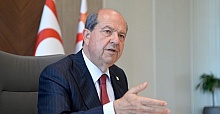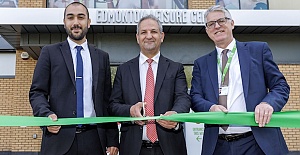Chancellor Rachel Reeves has delivered her Spending Review, setting out budgets for government departments. She says spending on the NHS will rise by 3% a year after inflation - that's more than expected, our health editor Hugh Pym writes. Reeves confirms £39bn for social and affordable housing, a boost in defence spending, an end to "costly" asylum hotels by 2029, and an extension of the £3 bus fare cap in England to 2027. The chancellor says she's rejecting "austerity" and confirms total departmental spending will grow by 2.3% over inflation per year But some departments will have their day-to-day budgets cut - including by 1.7% at the Home Office and 6.9% at the Foreign Office. The chancellor says spending increases are possible because of "decisions I took in the Autumn to raise taxes, and changes to the fiscal rules" - the Conservatives' Mel Stride attacks her approach as "spend now, tax later"
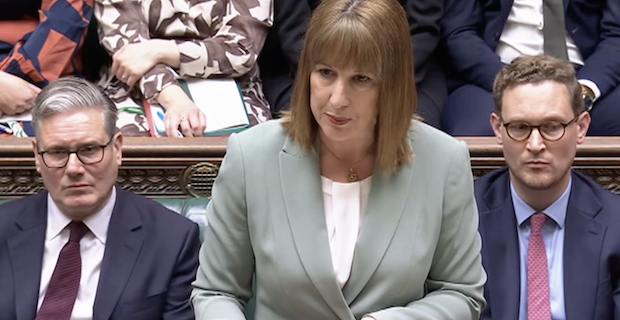
NHS: The day-to-day budget for the health service in England will go up by 3% over the next three years - more than was expected - reaching £226bn by 2029.
Housing: It was confirmed that £39bn will be allocated to building social and affordable housing in England between 2026 and 2036 - that's an average of £3.9bn a year.
Defence: The Ministry of Defence's day-to-day budget will go up 0.7% in real terms, with investment spending over the period averaging 7.3%. (We already knew that defence spending is due to rise from 2.3% to 2.5% of overall economic output by 2027.)
Asylum hotels: The government said it will end the use of hotels to temporarily house asylum seekers before the next election - this was in Labour's manifesto.
Education: The core schools budget in England will increase by 0.4% in real terms on average over the next three years, reaching £69.5bn by 2029. It was also confirmed that free school meals will be extended to around 500,000 more children whose parents are receiving benefits.
Transport: £15.6bn will be allocated between 2027 and 2031 for transport projects in English city regions outside London, plus the £3 cap on single bus fares in England will be extended until March 2027.
Energy: An additional £11.5bn will go towards the cost of building the Sizewell C nuclear power plant in Suffolk, which will also require private investment.
And here's a flavour of what the Conservatives said in response:
Shadow chancellor Mel Stride said his party would've made different choices and focused on improving "efficiency in the public sector", and "getting a grip on welfare"
He described Reeves as "the chancellor who refuses to listen", and said it's "working people and businesses who will pay the price" at her next Budget - at which he said it's "inevitable" that new tax rises would be announced


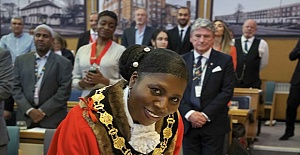 Margaret Greer has been sworn in as the new Mayor of Enfield
Margaret Greer has been sworn in as the new Mayor of Enfield Prime Minister Keir Starmer's 2025 Easter message
Prime Minister Keir Starmer's 2025 Easter message After Nesil Caliskan a by-election will be held in Jubilee ward in Enfield
After Nesil Caliskan a by-election will be held in Jubilee ward in Enfield Publishing the analysis, Labour’s Cllr Ergin Erbil said Everybody in Enfield deserves basic rights
Publishing the analysis, Labour’s Cllr Ergin Erbil said Everybody in Enfield deserves basic rights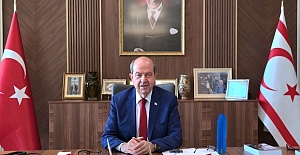 Statement from the TRNC Presidency on the European Court of Human Rights
Statement from the TRNC Presidency on the European Court of Human Rights Great respect for Ataturk and enthusiastic youth celebration in England
Great respect for Ataturk and enthusiastic youth celebration in England UK AMBASSADOR TO TURKEY VISITS FETHIYE
UK AMBASSADOR TO TURKEY VISITS FETHIYE Journalists from Europe held the Turkish Media Workshop in Skopje
Journalists from Europe held the Turkish Media Workshop in Skopje European champions Arsenal Women will play all of their league matches at the Emirates Stadium
European champions Arsenal Women will play all of their league matches at the Emirates Stadium Fenerbahce is the EuroLeague champion
Fenerbahce is the EuroLeague champion Brennan Johnson’s first-half strike seals London side’s win
Brennan Johnson’s first-half strike seals London side’s win The 'Prince of Paris' has impressed in his first EuroLeague season
The 'Prince of Paris' has impressed in his first EuroLeague season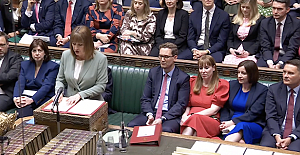 Chancellor Reeves boosts NHS and housing
Chancellor Reeves boosts NHS and housing Crackdown on blue badge misuse with new enforcement partnership
Crackdown on blue badge misuse with new enforcement partnership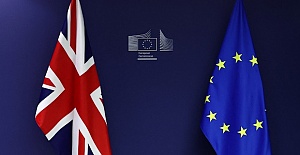 UK, EU reach landmark agreement on food, fishing ahead of London summit
UK, EU reach landmark agreement on food, fishing ahead of London summit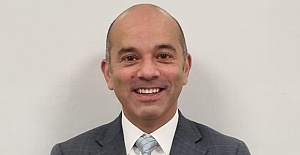 Perry Scott to become Enfield Council Chief Executive
Perry Scott to become Enfield Council Chief Executive
